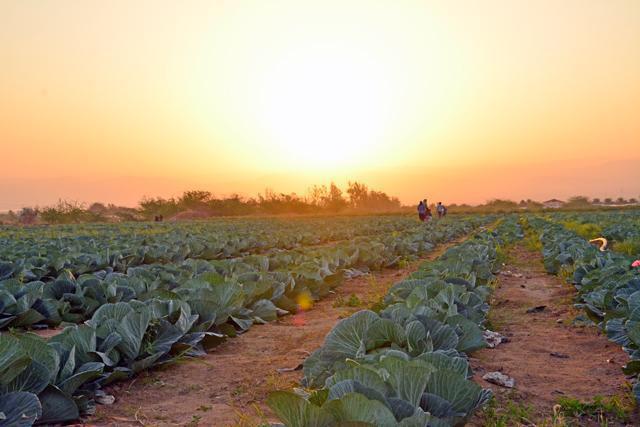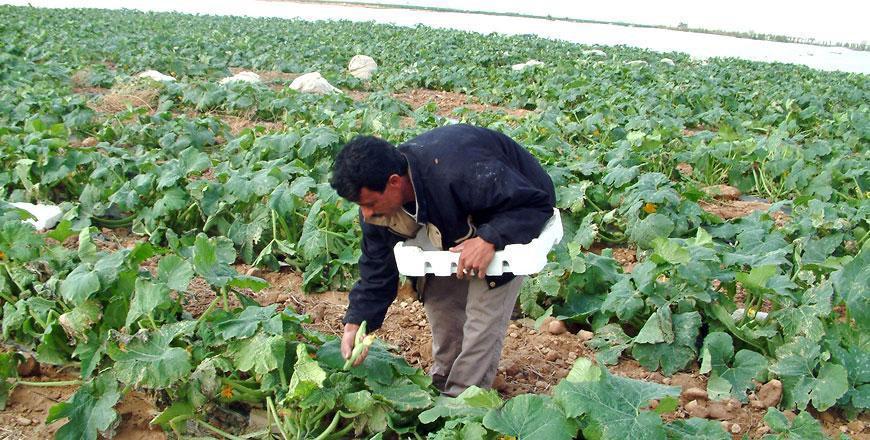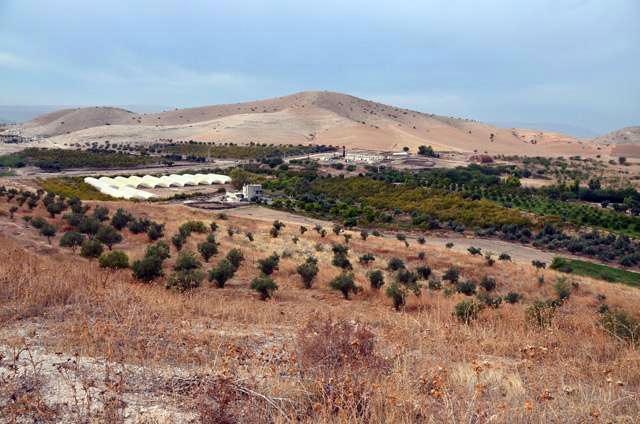You are here
Shortage of labour, water and high operational costs loom large over agriculture sector
By Maram Kayed - Dec 19,2020 - Last updated at Dec 19,2020

The shortage of labour and water, and the high operational costs compared with revenues are the three main “alarming” problems in the agriculture sector, Minister of Agriculture Mohammad Daoudiyeh said (JT file photo)
AMMAN — The shortage of labour and water, and the high operational costs compared with revenues are the three main “alarming” problems in the agriculture sector, Minister of Agriculture Mohammad Daoudiyeh said.
In a statement made available to The Jordan Times, the minister said that these “great challenges require immediate attention”.
“We have farmers paying thousands in operational costs such as wages, water fees, taxes, transportation and marketing costs to sell kilos starting with 0.30 piaster. This is a real problem that has driven many out of the profession,” said Mahmoud Oran, president of the Jordanian Farmers Union.
In a phone interview with The Jordan Times, Oran said that what the minister noted about farmers no longer planting crops that are sold at low prices is “the beginning of a very serious phenomenon”.
“We cannot achieve self-sufficiency or food security if farmers decide to abandon crops that have significantly high production costs and low selling prices, as these crops are mostly what Jordanians consider as essential,” added Oran.
Given that “the government is currently unable to aid the sector”, as put by Daoudiyeh, it will “move in different directions to save it”.
According to the minister, saving the sector means that “there are fees, taxes and labour permits that need revisiting”.
Oran said that such reconsiderations are “not only welcomed but much needed. If farmers cannot receive anymore governmental aid then maybe they would benefit from reduced governmental burdens”.
Stakeholders, such as the Jordanian Agriculture Engineers Associations, commenting on the three main problems listed by the minister, said that “they were always there, but with the coronavirus pandemic, they have been increasingly noticeable”.
Spokesperson for the Association Nuhad Olaimi told The Jordan Times that “the issue of labour in particular has been much discussed with the Ministry of Labour. As much as we want the workforce in the sector to be mostly Jordanian, it is unwise to limit the number of foreign workers before finding Jordanian replacements”.
“The coronavirus pandemic, which has restricted foreign labour entry into the country, paired with the stigma surrounding Jordanian working hands in agriculture, has created serious shortages at a time when imports are not smoothly processed,” Olaimi said.
“These three main problems require government intervention. The problem of water, for example, has been an issue raised in almost every meeting with the Ministry of Water and Irrigation,” he added.
Although Dawoudiyeh did not state how the ministry is planning to tackle these challenges, ministry’s spokesperson Lawrence Majali said that “while last year’s priorities were to achieve self-sufficiency, next year’s priorities will be to save the sector by reducing some of our farmers’ burdens”.
“It is important for our farmers to know that although these problems have been around for long, we have not given up on neither them nor solving their problems,” he added.
Related Articles
AMMAN — Farmers and their multiple associations suspended a protest in front of the Prime Ministry on Sunday afternoon until next week, afte
AMMAN —The Agricultural Credit Corporation has approved a decision to grant loans valued at JD10 million with zero interest rates to farmers
AMMAN — The project to utilise arable lands, as per the Royal vision to achieve food security, helps in reducing poverty and unemployment le


















